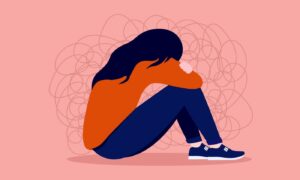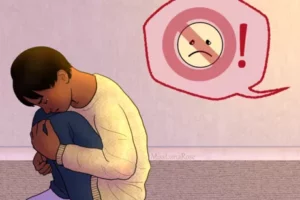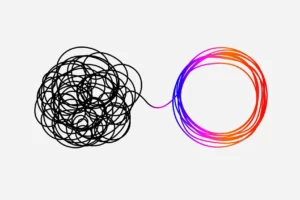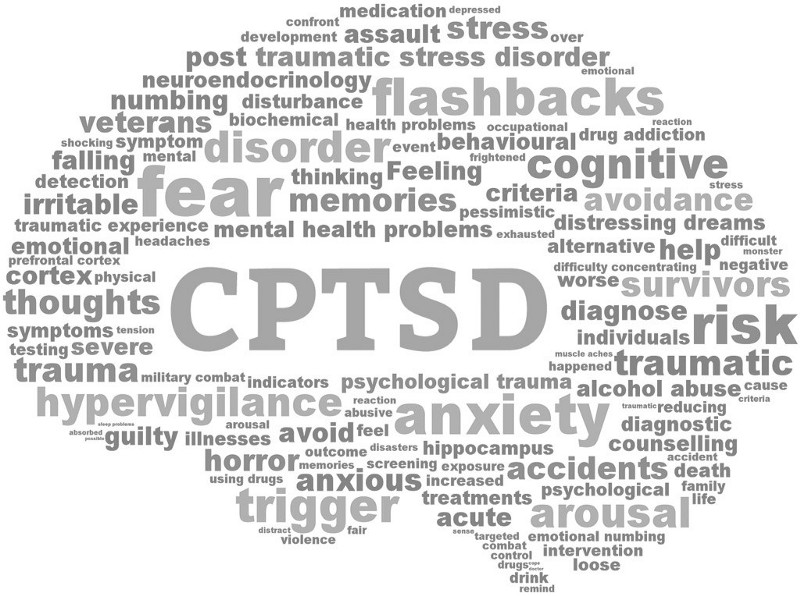Complex PTSD is a term that describes the symptoms of post-traumatic stress disorder. This occurs in people who have experienced multiple, chronic traumatic events. Complex PTSD can be very difficult to diagnose because it does not always fit into the traditional mold of PTSD. This blog post will discuss the symptoms of complex PTSD, and how to get help if you think you may be suffering from this condition.
Contents
What Is Complex PTSD?
 PTSD, as one might be aware, is a mental health condition that can develop after a person experiences or witnesses a traumatic event. While PTSD can occur in response to a single, isolated event, complex PTSD is the result of exposure to multiple, chronic traumas. This distinction is what makes complex PTSD so difficult to diagnose and treat.
PTSD, as one might be aware, is a mental health condition that can develop after a person experiences or witnesses a traumatic event. While PTSD can occur in response to a single, isolated event, complex PTSD is the result of exposure to multiple, chronic traumas. This distinction is what makes complex PTSD so difficult to diagnose and treat.
The addition of the word “complex” elevates PTSD from a disorder to a syndrome. This is because complex PTSD characterizes not only by the symptoms of PTSD, but also by other features that can make the condition even more debilitating.
How Does It Differ From PTSD?
One might think about what difference a word makes to a disorder. However, the gravity of the situation is much more than that. PTSD is a disorder that is diagnosed by the presence of specific symptoms, while complex PTSD is diagnosed by the presence of those symptoms, as well as certain other factors.
The main difference between the two conditions is that complex PTSD includes some features that are not part of the standard definition of PTSD. These additional features can make complex PTSD more difficult to diagnose and treat.
Moreover, PTSD can happen due to a one-time event. For instance, say one gets into a car accident. The person may develop PTSD from the accident. On the other hand, complex PTSD is usually the result of repeated and prolonged trauma. An example of this would be if someone was raised in an abusive household. This signifies that the exposure to trauma was not just a one-time event, but something that occurred multiple times over an extended period of time.
What Are The Warning Signs?
 Typically, signs of PTSD are classified into four categories. These encompass of the following.
Typically, signs of PTSD are classified into four categories. These encompass of the following.
- Intrusive thoughts: This can involve reliving the trauma through flashbacks or nightmares. One may also have unwanted and intrusive thoughts about the event.
- Avoidance: A person may try to avoid anything that reminds them of the trauma. This can include people, places, activities, objects, and situations.
- Negative changes in mood and thinking: A person may experience negative changes in their mood and thinking. This can include feeling hopeless, losing interest in activities that were once enjoyed, negative self-image, and feeling detached from others.
- Changes in physical and emotional reactions: A person may have difficulty sleeping, experience irritability or anger, have trouble concentrating, or be constantly on guard.
As mentioned earlier, complex PTSD includes these features as well as others. In addition to the symptoms of PTSD, people with complex PTSD may also experience additional symptoms like the following.
- Negative view of yourself: A person with complex PTSD may have a negative view of themselves. They may feel worthless, helpless, or ashamed.
- Loss of control: A person with complex PTSD may feel like they have no control over their lives. They may feel like they are powerless or trapped.
- Easily startled: A person with complex PTSD may be easily startled or always on guard. They may be constantly on the lookout for danger.
- Self-destructive behavior: A person with complex PTSD may engage in self-destructive behavior. This can include substance abuse, risky behaviors, or self-harm.
- Dissociation: A person with complex PTSD may dissociate from their surroundings. This can involve feeling disconnected from their body or numbing their emotions.
- Emotions that feel “out of control”: A person with complex PTSD may feel like their emotions are out of control. They may swing from one extreme emotion to another or feel overwhelmed by their emotions.
- Relationship difficulties: A person with complex PTSD may have difficulty in their relationships. They may feel isolated, mistrustful, or unable to get close to others.
- Loss of your belief system: A person with complex PTSD may lose their belief system. This can involve feeling like there is no meaning in life or that the world is a dangerous place
- Difficulty recognizing reality: A person with complex PTSD may have difficulty recognizing reality. This can involve feeling like the trauma is still happening or that they are in danger even when they are not.
These are just some of the symptoms that a person with complex PTSD may experience. It’s important to remember that everyone experiences C-PTSD differently and that not everyone will experience all of these symptoms.
What Are The Causes And Risk Factors?
Since trauma is a very subjective and personal experience, the causes of C-PTSD can be difficult to narrow down. However, there are certain risk factors that have been associated with the development of C-PTSD. Some of the most common causes and risk factors for C-PTSD include:
- A history of childhood abuse or neglect
- Prolonged exposure to domestic violence, war, or other forms of violence
- Being involved in war or combat
- Battling chronic illnesses
- Natural disasters
- Prolonged exposure to sexual abuse or rape
While these are some of the most common causes of C-PTSD, it is important to remember that not everyone who experiences these events will develop the condition. It is also possible to develop C-PTSD without any prior history of trauma. This is possible because of certain biological or environmental risk factors such as:
- History of mental illness in the family
- History of substance abuse in the family
- Lack of social support
- Poverty or exposure to other forms of adversity
- Discrimination or prejudice
It is also a possibility that these causes and risk factors may overlap. This implies that a person who has a history of abuse may be more likely to develop C-PTSD if they are also exposed to other forms of violence. The intersection of two or more risk factors can make a person more susceptible to developing C-PTSD.
How Does It Impact Life?
Living with a constant weight on your shoulders can be incredibly difficult. People with C-PTSD often struggle with the repercussions of this disorder in various domains of life.
Physiological
It is no secret that the mind and body are connected. This means that when the mind is affected, the body often follows. People with C-PTSD often struggle with various physical health problems such as:
- Chronic pain
- Digestive problems
- Headaches
- Stroke
- Sweatiness
- High blood pressure
- Sleep disorders
- Cardiovascular issues
- Autoimmune disorders
These are just some of the ways that complex PTSD can impact a person’s physical health. It’s important to remember that everyone experiences C-PTSD differently and that not everyone will experience all of these symptoms.
Cognitive
It’s not just the physical health that is affected by C-PTSD. The cognitive functioning of a person with C-PTSD can also be significantly impacted. People with C-PTSD often struggle with:
- Difficulty concentrating
- Memory problems
- Brain fog
- Trouble recollecting and retaining memories
- Confusion
- Disorientation
These cognitive difficulties can make it hard for a person to function in their everyday life. It can be hard to keep up with work, school, or other responsibilities when you are constantly struggling to remember things or focus on the task at hand.
Psychological
 Having one psychological disorder can make life difficult enough, but when you add multiple disorders into the mix, it can be almost impossible to function. People with C-PTSD often struggle with:
Having one psychological disorder can make life difficult enough, but when you add multiple disorders into the mix, it can be almost impossible to function. People with C-PTSD often struggle with:
- Anxiety disorders
- Depressive disorders
- Personality disorders
- Eating disorders
- Obsessive-compulsive disorder
- Substance abuse problems
These mental health issues can make it hard for a person to maintain healthy relationships, hold down a job, or even take care of themselves. It’s important to seek help if you are struggling with any of these disorders.
Emotional
When we struggle with our mental and physical health, it’s only natural that our emotions will have an affect as well. People with C-PTSD often struggle with:
It can be hard to cope with the range and intensity of emotions that come with C-PTSD. You might find yourself feeling things you’ve never felt before or numbing yourself to all emotions altogether. It’s important to find healthy ways to deal with your emotions.
Social
 At last, having a grave psychological disorder can hamper our social life in a great way. People with C-PTSD often find it hard to:
At last, having a grave psychological disorder can hamper our social life in a great way. People with C-PTSD often find it hard to:
- Trust other people
- Maintain healthy relationships
- Socialize
- Go out in public
- Be around large groups of people
- Engage in small talk
- Form social/platonic/professional/romantic/intimate relations
- Keep a job
- Interact with others
This can be incredibly isolating and lonely.
These are all the ways in which complex PTSD can impact a person’s life. It’s important to seek help if you are struggling with any of these symptoms. There is no shame in seeking help and there are people who want to help you. You are not alone.
How Is It Diagnosed?
The diagnosis is usually made by a mental health professional, such as a psychiatrist or psychologist. The diagnosis is made based on the presence of specific symptoms and signs.
To get a C-PTSD diagnosis, a person must fit the following criteria.
- They must have experienced a long-lasting event or series of events that were:
-Outside the realm of human experience (e.g. torture, enslavement)
-Violated their sense of self
-Causes them to feel hopeless and helpless
- As a result, the person experiences three or more of the symptoms given above.
- The symptoms should persist for more than three months and cause significant distress or impairment in social, work or other important areas of functioning.
It’s important to note that C-PTSD is not the same as PTSD. PTSD is a diagnosis that can be made after a single event, such as a car accident or a natural disaster. C-PTSD, on the other hand, is caused by repeated exposure to trauma. The diagnosis of C-PTSD is controversial because it’s not yet has an inclusion in the Diagnostic and Statistical Manual of Mental Disorders (DSM). If you think you may have C-PTSD, it’s important to seek professional help.
What Are The Treatment Options?
 When talking about treatment for complex PTSD, it is essential to consider both the physical and psychological symptoms. It is important to address both the mind and the body when treating C-PTSD. There are a few different types of treatment that have been found to be effective in treating C-PTSD. These include:
When talking about treatment for complex PTSD, it is essential to consider both the physical and psychological symptoms. It is important to address both the mind and the body when treating C-PTSD. There are a few different types of treatment that have been found to be effective in treating C-PTSD. These include:
- Psychotherapy: This is also known as talk therapy. It involves meeting with a therapist to talk about your experiences and feelings.
- Cognitive behavioral therapy (CBT): This type of therapy helps you to identify and change negative thoughts and behaviors.
- Exposure therapy: This type of therapy helps you to confront your fears and traumas. It works by slowly exposing you to the things that trigger your symptoms.
- Eye movement desensitization and reprocessing (EMDR): This type of therapy to help you process and heal from trauma by using eye movements.
- Medication: Medication can be used to treat the symptoms of C-PTSD. The most common types of medication used to treat C-PTSD are antidepressants, anti-anxiety medications, and antipsychotics.
- Hospitalization: In some cases, people with C-PTSD may need to be hospitalized. This is usually only done in cases where the person is a danger to themselves or others.
There is also a variety of self-help strategies available for people with C-PTSD. These include:
- Support groups: There are many different types of support groups available for people with C-PTSD. These groups can provide emotional support and practical advice.
- Books: There are many books available on the topic of C-PTSD. These books can be a great resource for information and support.
- Lifestyle changes: There are a number of lifestyle changes that can help to reduce the symptoms of C-PTSD. These include exercise, relaxation techniques, and healthy eating.
- Journaling: Journaling can be a helpful way to process your thoughts and feelings. It can also be a form of exposure therapy.
- Trigger identification: It is important to identify your triggers and develop a plan for how to deal with them. This can help to prevent or reduce the symptoms of C-PTSD.
Complex PTSD is a serious condition that can have a profound impact on a person’s life. If you think you may have C-PTSD, it’s important to seek professional help. There are a number of treatment options available, and with the right help, you can recover from C-PTSD.
Conclusion
To conclude our blog post, we can say that complex PTSD is a debilitating condition that can have a profound impact on an individual’s life. There are many resources available to those who need assistance in dealing with this condition. With the proper support, complex PTSD can become manageable and individuals can live happy and fulfilling lives.
If you or someone you know is looking for psychological help, Therapy Mantra is here for you. We are the leading providers of online therapy and counseling. Our team of highly trained and experienced therapists can provide assistance at the most affordable rates. Contact us today to learn more about our services. You may also visit our website to book an online therapy session or download our free Android or iOS app for more information.


